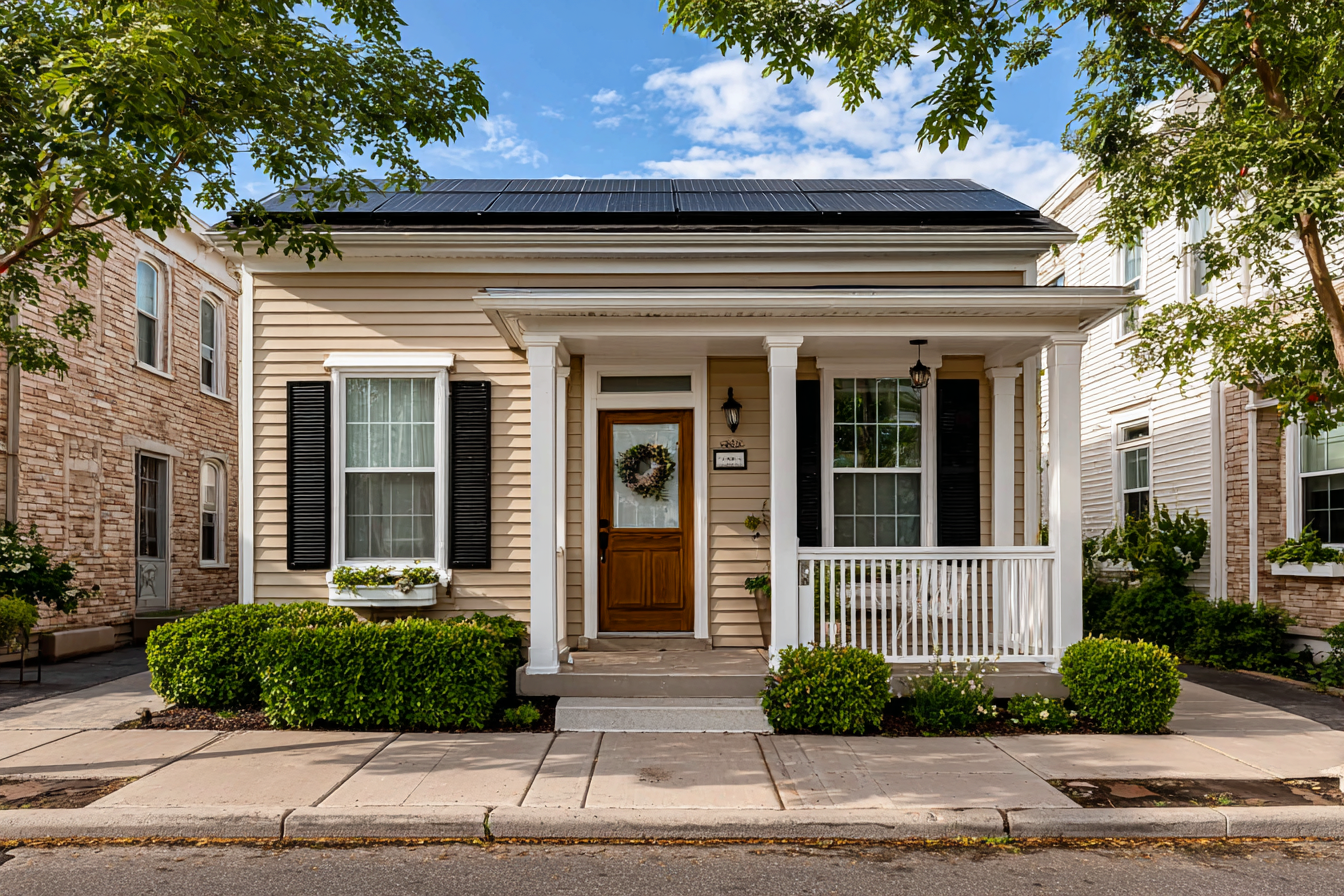
How to Pitch Solar or Heat Pumps to Your Landlord (and Get a Yes)
Introduction
Love your rental but hate the heating bill? Dreaming of solar panels or a heat pump but stuck because you don’t own the place?
You’re not alone. Thousands of Canadians live in rentals where outdated heating systems or high electricity costs eat into their monthly budgets — and where landlords may not be eager to invest in upgrades. But here’s the good news: with the right pitch, you can make the case for clean energy in a way that benefits both of you.
In this article, we’ll show you exactly how to approach your landlord about installing solar panels or a heat pump — and how to frame it as a win-win that improves the property, reduces emissions, and even increases resale value.
Know What’s In It for Your Landlord
Before you knock on your landlord’s door or send that email, understand their priorities.
What landlords care about:
- Property value: Will this make the unit more attractive or increase resale price?
- Maintenance costs: Will it reduce repair calls or extend equipment life?
- Vacancy rates: Will it help keep good tenants longer?
- Cash flow: Is there a way to pay over time or use rebates?
Example: In Ontario, a landlord who upgrades to a cold-climate heat pump may qualify for rebates under the Enbridge HER+ program — even if the home is tenant-occupied.
Use Numbers — Not Just Idealism
Landlords are business owners, so talk like one. Show them real savings and benefits.
| Upgrade | Monthly Savings | Incentives Available | Payback Time |
|---|---|---|---|
| Heat pump | $50–$150/month | $5,000–$7,800 | 5–8 years |
| Solar panels | $800–$1,200/year | Up to $5,000 + loan | 8–12 years |
| Smart thermostat | $10–$20/month | $50–$100 rebate | <1 year |
Tip: Use Solenery Insights to generate a tailored report with estimated savings and rebates based on your postal code. Print it or email it to your landlord with your pitch.
Offer Solutions, Not Just Problems
Don’t say: “My heating bill is too high, you need to fix this.”
Do say:
“I looked into efficient heat pumps that could reduce utility bills by $1,200/year. There’s a $6,500 rebate available, and it would improve the unit’s value. Want me to send you the info?”
Suggestions to make their life easier:
- Offer to help schedule a free energy audit
- Connect them with a rebate-approved contractor
- Let them know you’re happy to stay longer if upgrades are made
Pro Tip: If you’re on a fixed-term lease, offer to extend it if they make the upgrade. That’s extra value for them.
Propose a Shared Savings Model
If your landlord is interested but hesitant on cost, suggest a shared-savings plan.
How it works:
- The landlord pays for the upgrade (with or without a rebate)
- You agree to a modest rent increase (e.g., $25–$50/month)
- Your energy bill drops by more than the rent increase
- The landlord recoups the cost over time, while the property value rises
Example: A tenant in Guelph proposed a $30/month rent increase after a heat pump installation. The tenant saved $70/month on electricity — and the landlord broke even in 6 years.
Key Point: This model is already being used in commercial property energy retrofits — why not bring it to rentals?
What to Do If They Say No
Sometimes, no matter how compelling your pitch, the answer is still “not right now.” That’s okay — you’ve planted a seed.
Your options:
- Ask if they’d reconsider next year — and offer to help with paperwork
- Explore community solar subscriptions or portable heat pump options (like window heat pumps or plug-in mini-splits)
- Suggest smaller upgrades like smart thermostats, LED lighting, or weatherstripping
- Use Solenery Insights to find what’s possible in your area even without landlord involvement
Reminder: You don’t need a roof or home ownership to start reducing your emissions and energy bills.
Conclusion
Pitching solar or a heat pump to your landlord might seem daunting — but with the right framing, clear numbers, and a little persistence, it can lead to major wins for everyone.
Key Point: Whether you’re saving money, increasing comfort, or reducing carbon, a smart energy upgrade is worth the conversation.